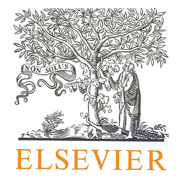دانلود ترجمه مقاله مالکیت سهامداران عمده و هزینه های حسابرسی
| عنوان فارسی |
مالکیت سهامداران عمده و هزینه های حسابرسی: تاثیر آن بر مدل حاکمیت شرکتی |
| عنوان انگلیسی |
Blockholders’ Ownership and Audit Fees: The Impact of the Corporate Governance Model |
| کلمات کلیدی : |
مدل حاکمیت شرکتی؛ ذینفعان؛ خدمات حسابرسی |
| درسهای مرتبط | حسابرسی |
| تعداد صفحات مقاله انگلیسی : 25 | نشریه : Taylor & Francis |
| سال انتشار : 2016 | تعداد رفرنس مقاله : 67 |
| فرمت مقاله انگلیسی : PDF | نوع مقاله : ISI |
|
پاورپوینت :
ندارد سفارش پاورپوینت این مقاله |
وضعیت ترجمه مقاله : انجام نشده است. |
1. مقدمه 2. توسعه فرضیات 3. طرح پژوهش 4. نتایج 5. نتیجه گیری

در این مقاله چگونگی تأثیرگذاری دو مدل برجسته حاکمیت شرکتی، یعنی مدل های سهامدار و ذینفع، در رابطه بین تعارض های وکالت (نمایندگی) و عرضه و تقاضا خدمات حسابرسی را بررسی می کنیم. سهامداران (ذینفعان) کشورها برای کاهش عدم تقارن اطلاعات برای سرمایه گذاران خارجی در زمینه ریسک بالا (کم) دادخواست، به اطلاعات عمومی (خصوصی) تکیه می کنند. برای کسب اطلاعات در مورد سهامداران عمده در کشورهای ذینفع، با استفاده از نمونه ای از 7982 مشاهدات مربوط به سال شرکت ها از 19 کشور، ما یک رابطه U شکل بین کنترل سهامداری و حسابرسی برای کشورهای سهامدار و یک رابطه U معکوس بین کنترل سهامداری و حسابرسی، برای کشورهای ذینفع پیدا می کنیم. این نتایج در مورد ترتیبات مختلف مدیریت در سطح شرکت سازگار هستند. مقدمه: ما تأثیر مدل حاکمیت شرکتی یک کشور را در رابطه بین درگیری های وکالتی ناشی از مالکیت سهامداران عمده و هزینه نظارت، از طریق حسابرسی بررسی می کنیم. به طور دقیق تر، سوال تحقیق ما این است: چگونه سهامدار و مدل های سهامدار (بال، کوتاری و رابین ، 2000) بر رابطه مالکیت سهامداران و هزینه های حسابرسی تأثیر می گذارند؟ از دیدگاه نظریه وکالتی، مالکیت بلاک و حسابرسی، دو مکانیسم مجزا مدیریت شرکت ها هستند (جنسن و مکلی 1976). تمرکز مالکیت به سهامداران کمک می کند تا جدایی مالکیت از کنترل شرکت را بر عهده بگیرند - که از آن به عنوان عامل اصلی یا مشکلات نمایندگی I(آخر هفته گذشته) یاد می شود. مالکیت مسدودکننده، کنترل را افزایش داده و عدم تقارن اطلاعات را با تسهیل دسترسی به اطلاعات داخلی، کاهش می دهد. تمرکز مالکیت به سهامداران کمک می کند تا جدایی مالکیت از کنترل شرکت را بر عهده بگیرند - به عنوان اصلی یا نماینده یا مشکل نمایندگی- (از این پس AP I یاد می شوند). حسابرسی با اطمینان از کیفیت صورت های مالی، مشکلات آژانس را کاهش می دهد که عدم تقارن اطلاعات و ضمانت نامه های برخورداری از همه سهامداران را نیز کاهش می دهد (دسندر، آگیلری، کرسپی و گارسیا-کستونا 2013، فرانسیس و وانگ 2008).
This paper examines how two prominent corporate governance models, namely the shareholder and stakeholder models, have different effects on the relation between agency conflicts and the supply, and demand of audit services. Shareholder (stakeholder) countries rely heavily on public (private) information to reduce information asymmetry for outside investors in the context of high (low) litigation risk.We expect audit fees to reflect the level of agency conflicts in shareholder countries as well as the needs for information of the major blockholders in stakeholder countries. Using a sample of 7982 firm-year observations from 19 countries, we find a U-shaped relation between controlling shareholding and audit fees for shareholder countries and an inverted U-shaped relation between controlling shareholding and audit fees for stakeholder countries. These results are consistent across different firm-level governance arrangements. Introduction: We examine the influence of a country’s corporate governance model on the relation between the agency conflicts emerging from blockholder ownership and the cost of monitoring through auditing. More precisely, our research question is: How do the shareholder and stakeholder models (Ball, Kothari, & Robin, 2000) influence the relation between blockholder ownership and audit fees? From an agency theory perspective, blockholder ownership and auditing are two separate corporate governance mechanisms (Jensen & Meckling, 1976). Ownership concentration helps shareholders tackle the separation of ownership from the control of the firm – referred to as the principal–agent or Agency Problem I (AP I hereafter). Blockholder ownership increases the control and reduces information asymmetry by facilitating access to inside information. However, too much ownership can entitle blockholders to extract rents from minority shareholders – referred to as the principal–principal or Agency Problem II (AP II hereafter) (Villalonga & Amit, 2006). Auditing mitigates agency problems by ensuring the quality of the financial statements, which reduces information asymmetry and warrants that all shareholders are treated equally (Desender, Aguilera, Crespi, & Garcia-Cestona, 2013; Francis & Wang, 2008).



دیدگاهها
هیچ دیدگاهی برای این محصول نوشته نشده است.